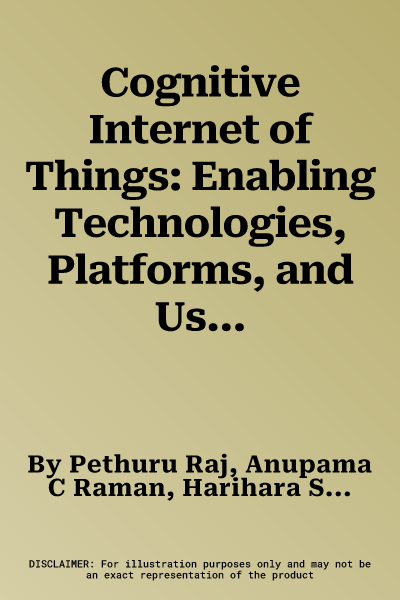The Internet of Things (IoT) concept is defined as a flexible and
futuristic network where all the different types of devices and smart
objects can become seamlessly connected to each other and can actively
participate in all types of processes which are happening around us. The
grand objective of making physical, mechanical, electrical, and
electronic devices to use the deeper and extreme connectivity and
service-enablement techniques is to make them intelligent in their
deeds, decisions, and deals. Cognitive IoT is the application of
cognitive computing technologies to the data which is generated by the
connected devices of the IoT ecosystem. Cognition means thinking;
however, computers are not yet fully capable of mimicking human like
thought. However, the present-day computer systems can perform some
functions which are like the capability of human beings to think.
Cognitive Internet of Things: Enabling Technologies, Platforms, and Use
Cases explains the concepts surrounding Cognitive IoT. It also looks at
the use cases and such supporting technologies as artificial
intelligence and machine learning that act as key enablers of Cognitive
IoT ecosystem. Different Cognitive IoT enabled platforms like IBM Watson
and other product specific use cases like Amazon Alexa are covered in
depth. Other highlights of the book include:
Demystifying the cognitive computing paradigm
Delineating the key capabilities of cognitive cloud environments
Deep learning algorithms for cognitive IoT solutions
Natural language processing (NLP) methods for cognitive IoT systems
Designing a secure infrastructure for cognitive IoT platforms and
applications

